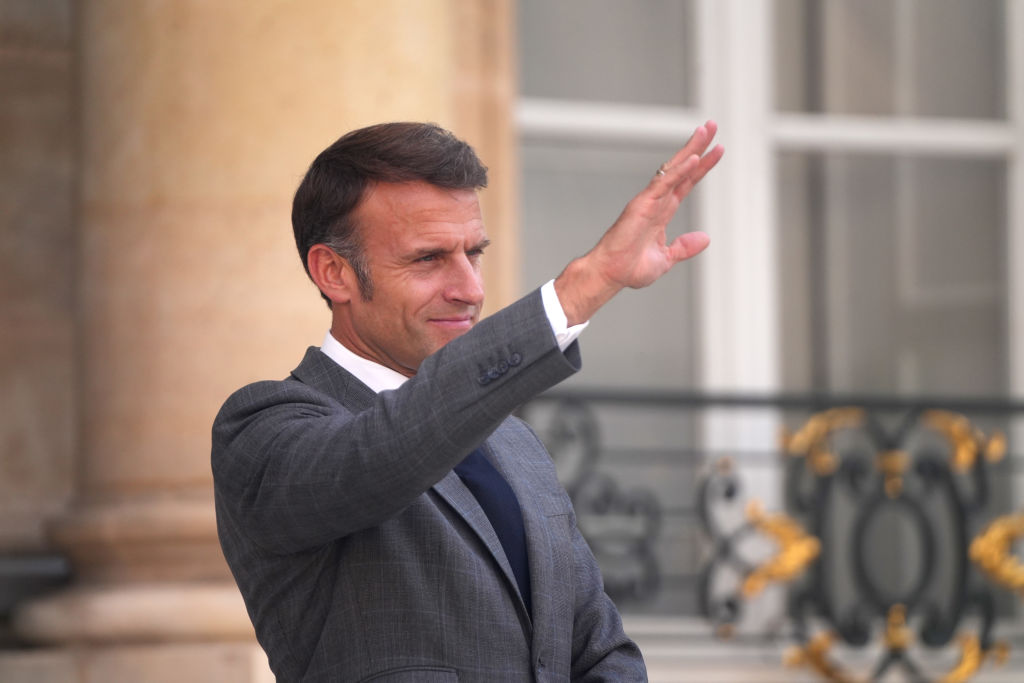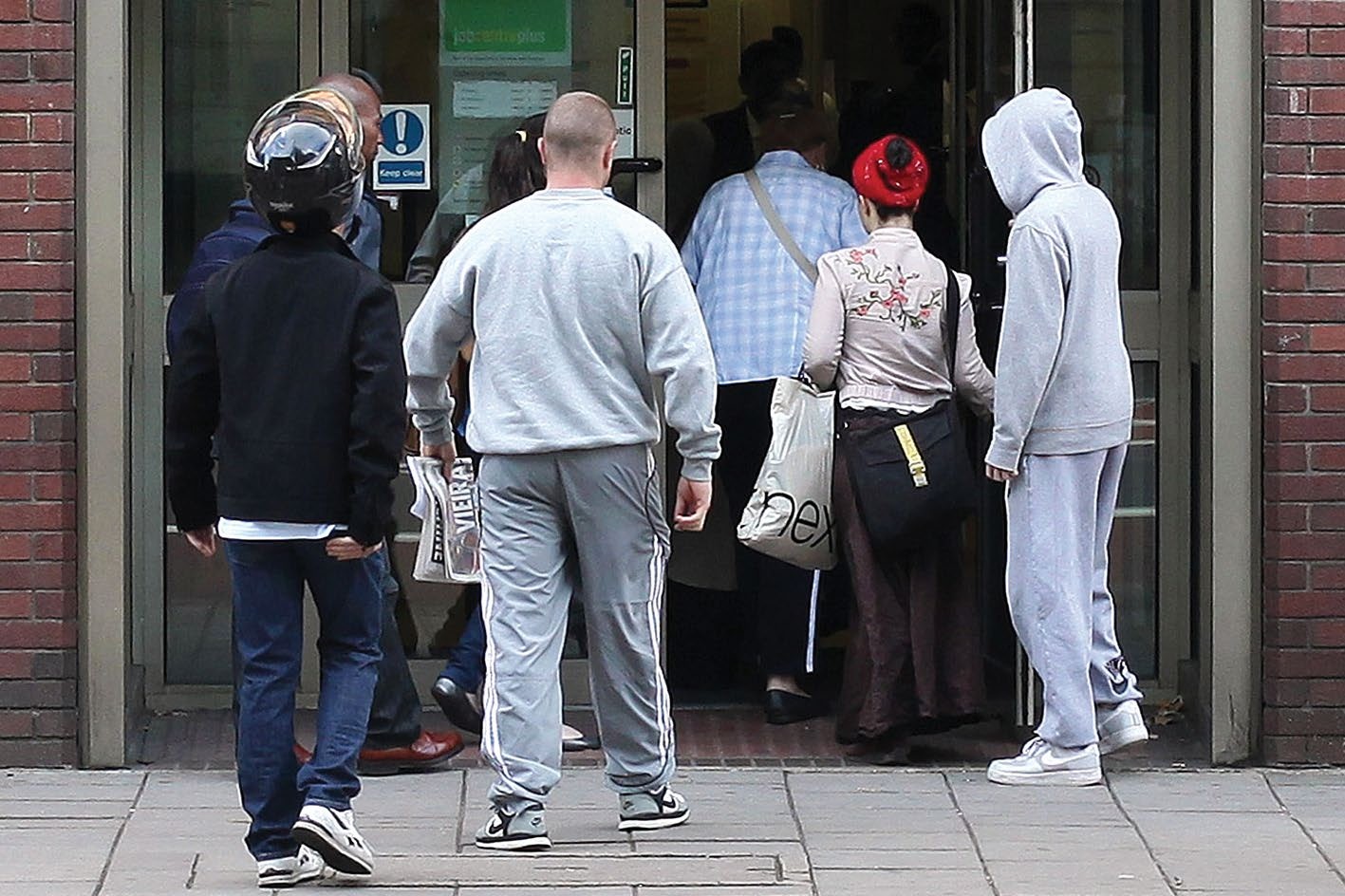French election: what will it mean for Macron?
What impact will the results of the French election have on Emmanuel Macron and what will it mean for France?

Get the latest financial news, insights and expert analysis from our award-winning MoneyWeek team, to help you understand what really matters when it comes to your finances.
You are now subscribed
Your newsletter sign-up was successful
Want to add more newsletters?
French voters went to the polls this weekend in the second round of France’s snap legislative elections, with its centrist president, Emmanuel Macron, facing disaster and humiliation – and France facing months of political stasis and economic turbulence.
Following the resounding victory, of Marine Le Pen for the hard-right National Rally (Rassemblement National, or RN) in the European Parliament elections less than a month ago, Macron stunned allies and opponents alike by announcing an immediate general election.
Macron wanted to seize the moment and take the battle to the far right, with the aim of uniting the centrist bloc, dividing the left, and isolating the RN. Rather than a bold tactical manoeuvre, it has proved more of a reckless gamble.
Try 6 free issues of MoneyWeek today
Get unparalleled financial insight, analysis and expert opinion you can profit from.

Sign up to Money Morning
Don't miss the latest investment and personal finances news, market analysis, plus money-saving tips with our free twice-daily newsletter
Don't miss the latest investment and personal finances news, market analysis, plus money-saving tips with our free twice-daily newsletter
French election first round
French voters flocked to the polls in the first round, delivering the highest turnout in decades and the RN taking a record 33% vote share. A hastily assembled left-wing alliance, the New Popular Front – taking in socialists, greens and communists – was second with 28%. Macron’s centrist coalition, Ensemble, limped home third with just 21%.
Under the French electoral system, a candidate getting 50% wins outright. Otherwise, the top two candidates in each constituency, plus any other candidates getting more than 12.5% of registered voters, go forward to the second round. In the first round, the RN placed first in 296 seats – enough to give it a parliamentary majority (meaning 289 seats in the 577-seat National Assembly) if it could repeat the feat in the second round.
French election second round results
With all eyes on France, a “Republican front” effort has risen up to stop the RN. More than 200 third-placed candidates from the left-wing alliance and Macron’s centrists dropped out to leave a straight fight between the RN and one other candidate. Analysts expected the RN to be the biggest party, but to fall short of a majority. But, on Sunday, 7 July, in a shock second-round twist the left-wing coalition won the day, with the RN pushed into third place.
Despite (or, perhaps, because of) that, there's likely to be political turmoil for months. Since the left-wing alliance failed to win an outright majority a hung parliament, and political gridlock, loom. Not least because there's a constitutional bar on calling fresh elections for another year.
Has Macron been a good leader?
From the point of view of business and investors, his presidency to date has seen a “sustained effort to remake France as a modern, business-friendly economy” and has been a broad success, says The Economist. Since 2017, Macron’s governments have reformed labour laws, making it easier to take on workers; two million jobs have been created and more than six million businesses set up. Macron has cut business taxes and wealth taxes, “boosted education and started to reform the unaffordable pension system. France’s growth is above the eurozone average, and poverty rates below it.”
Why is Macron getting kicked by voters?
It’s partly the terrible timing of an election three years earlier than needed, on the back of defeat in the European elections – traditionally a chance to give incumbents a kicking. It’s partly the unforeseen ability of the left, normally hopelessly divided, to quickly form a united front. And it’s partly the backlash against what many voters see as Macron’s arrogant, elitist manner and unpopular reforms, especially on pensions.
The other crucial factor is the transformation of the RN, formerly the National Front, which over the past decade has shifted from its openly racist and quasi-fascist roots into a hard-right nativist party with a broader appeal, exemplified by its young candidate for prime minister, Jordan Bardella, aged just 28.
“There is now a sizeable share of the mainstream right that would consider voting for the National Rally – or at least no longer sees it as a threat,” says pollster Stéphane Fournier. “That is especially the case when the other candidate is from the left, which many conservatives are more scared of.”
How did markets react to round one?
After the first round, Monday 1 July saw a classic relief rally, as markets judged that the RN had slightly underperformed expectations, making an outright RN majority less likely. The CAC-40 index rose 2.4% in early trading – its best daily performance for two years – with bank stocks in particular surging, led by Société Générale and Crédit Agricole.
Bond prices, which had fallen during the campaign, began to rise again. But that burst of initial optimism is likely to prove misplaced, says the Lex column in the Financial Times.
Investors are betting that political gridlock would be a better option than an RN government, which is promising a fiscally reckless programme of protectionism, welfare spending and unfunded tax cuts – including slashing VAT and exempting anyone under 30 from income tax. The underlying reality, though, is that France is facing a prolonged period of great political uncertainty, and entering it with exceptionally high debt levels – a potentially toxic mix.
How much debt does France have?
Total government debt has reached 112% of GDP, up from 66% two decades ago and among the highest of rich countries after Japan and the US, both of which are far larger economies. Its current government deficit is more than 5% of GDP, and its credit rating has been downgraded twice in months.
Already, the spread of French government bonds over their German equivalents is close to multi-year highs, reflecting the fragility of investor sentiment, says Neil Shearing of Capital Economics. The fear is that a “fiscally incontinent” RN government would cause a repeat of the crisis that hit the UK in the autumn of 2022. That’s a worry, since France is not just the eurozone’s second biggest economy but the world’s fourth largest bond market.
What's the wider impact?
The thing about deficits is that they don’t really matter – until the bond market decides that they do, says Pierre Briançon on Breakingviews. The prospect of a lame duck president, and either a 28-year-old hard-right prime minister with gigantic spending plans, or a centrist technocrat with no real mandate or authority, means instability is looming.
This is “not just a crisis for France” – but for the whole of the EU, says Andrew Neil in the Daily Mail. France will have a parliament – and perhaps even a new government – packed with eurosceptics and politicians who “despise the soft-left technocratic consensus that rules in Brussels”. Macron is a “busted flush”, and with Olaf Scholz limping on as chancellor of Germany, Europe will be “bereft of leadership” at a time of geopolitical peril.
The UK, meanwhile, is moving from one majority government to another, with a minimum of fuss. Britain, for all the clamour and rancour of the election campaign, suddenly seems an “island of stability”.
This article was first published in MoneyWeek's magazine. Enjoy exclusive early access to news, opinion and analysis from our team of financial experts with a MoneyWeek subscription.
Get the latest financial news, insights and expert analysis from our award-winning MoneyWeek team, to help you understand what really matters when it comes to your finances.
-
 What do rising oil prices mean for you?
What do rising oil prices mean for you?As conflict in the Middle East sparks an increase in the price of oil, will you see petrol and energy bills go up?
-
 Rachel Reeves's Spring Statement – live analysis and commentary
Rachel Reeves's Spring Statement – live analysis and commentaryChancellor Rachel Reeves will deliver her Spring Statement on 3 March. What can we expect in the speech?
-
 UK small-cap stocks ‘are ready to run’
UK small-cap stocks ‘are ready to run’Opinion UK small-cap stocks could be set for a multi-year bull market, with recent strong performance outstripping the large-cap indices
-
 The scourge of youth unemployment in Britain
The scourge of youth unemployment in BritainYouth unemployment in Britain is the worst it’s been for more than a decade. Something dramatic seems to have changed in the labour markets. What is it?
-
 In defence of GDP, the much-maligned measure of growth
In defence of GDP, the much-maligned measure of growthGDP doesn’t measure what we should care about, say critics. Is that true?
-
 Reach for the stars to boost Britain's space industry
Reach for the stars to boost Britain's space industryopinion We can’t afford to neglect Britain's space industry. Unfortunately, the government is taking completely the wrong approach, says Matthew Lynn
-
 "Botched" Brexit: should Britain rejoin the EU?
"Botched" Brexit: should Britain rejoin the EU?Brexit did not go perfectly nor disastrously. It’s not worth continuing the fight over the issue, says Julian Jessop
-
 'AI is the real deal – it will change our world in more ways than we can imagine'
'AI is the real deal – it will change our world in more ways than we can imagine'Interview Rob Arnott of Research Affiliates talks to Andrew Van Sickle about the AI bubble, the impact of tariffs on inflation and the outlook for gold and China
-
 Tony Blair's terrible legacy sees Britain still suffering
Tony Blair's terrible legacy sees Britain still sufferingOpinion Max King highlights ten ways in which Tony Blair's government sowed the seeds of Britain’s subsequent poor performance and many of its current problems
-
 How a dovish Federal Reserve could affect you
How a dovish Federal Reserve could affect youTrump’s pick for the US Federal Reserve is not so much of a yes-man as his rival, but interest rates will still come down quickly, says Cris Sholto Heaton